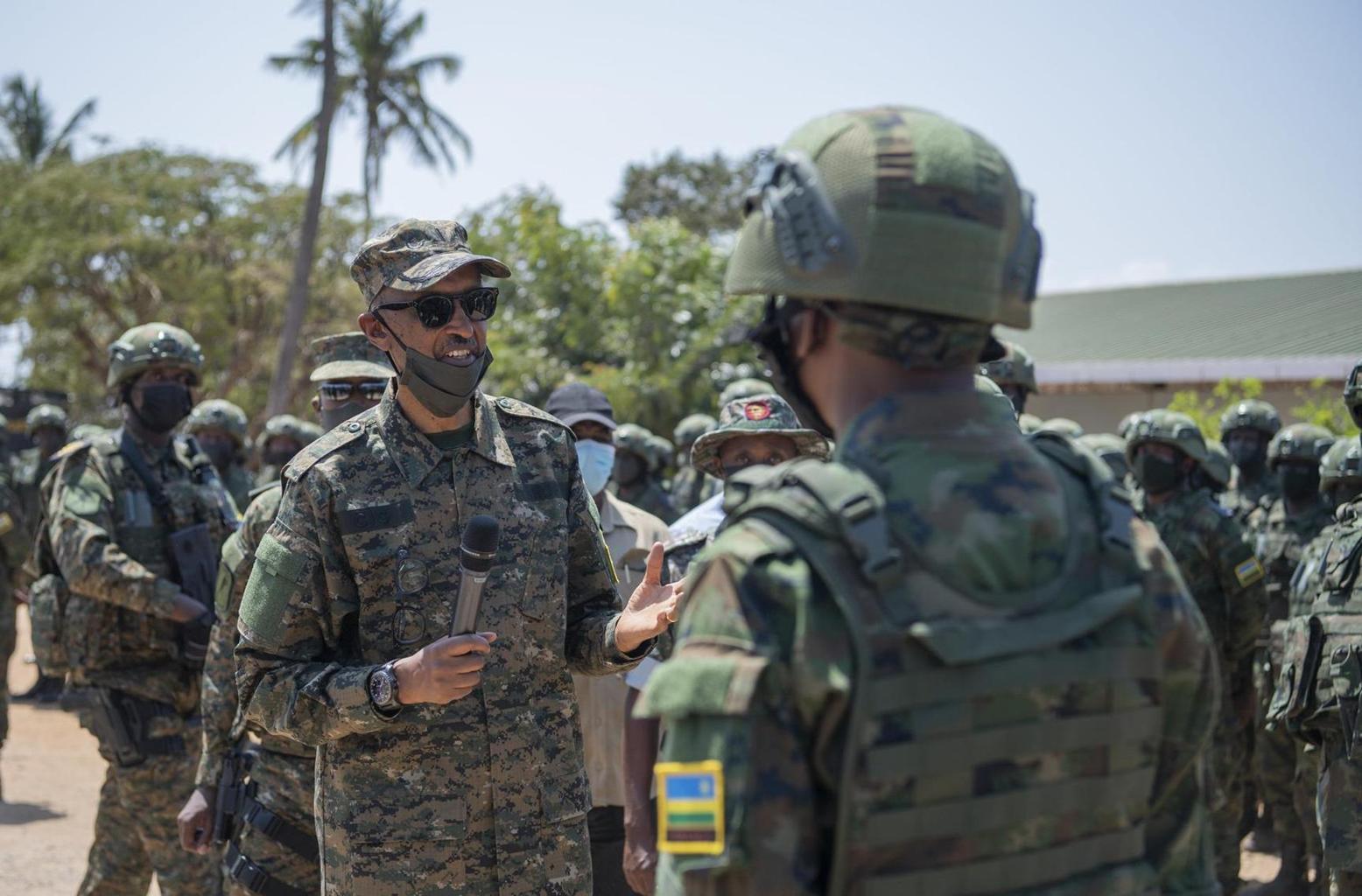Africa-Press – Rwanda. Last week, September 24, the BBC Kinyarwanda service Gahuza Miryango published a bizarre story on the day that President Kagame flew to Cabo Delgado to meet with his Mozambican counterpart, President Nyusi.
The story – ostensibly about a press conference by Rwandans in Mozambique that coincided with President Kagame’s visit – aimed at diverting attention from President’s Kagame’s visit to troops deployed there to fight terror insurgents.
For the BBC, the fact that people are now back in their homes and safe from the insurgents is not worth coverage. The BBC isn’t even concerned about giving the impression that it prefers to take the side of terror insurgents rather than give credit to Rwanda. But it’s nothing new.
The title of an August 6 report “Mozambique insurgency: Rwanda leads the fightback” suggested already that the BBC would side with terrorists as the media outlet couldn’t help but lead in the introduction with sympathy to the insurgents. “A 1,000-strong Rwandan force has hit the ground running since its deployment in Mozambique to fight poor insurgents who have carried out devastating attacks in the far north of the country,” the BBC wrote to the amazement of social media commentary regarding the intent of describing terrorists as “poor insurgents,” asking themselves to who the BBC should extend sympathy in its reporting. To terrorists? Or to their victims, which the Rwandan and Mozambican forces had come to rescue?
The BBC was apparently regretting what was happening to the terrorists, as if the latter had brought peace and prosperity to the people of Cabo Delgado, which the RDF soldiers were on the verge of destroying.
But the BBC has been consistent in its tasteless coverage of Rwanda. In the last two decades, the BBC and the Rwandan government have been at loggerheads over the coverage of Rwanda, with the former’s Kinyarwanda service doing everything in its powers to undo the government’s efforts to fight genocide ideology in the Rwandan society.
Time and again, its Saturday programme Imvo n’Imvano would host genocide deniers, and even suspects on the run from crimes of genocide, to spew hate under the guise of partaking in “political debate.” This pro-genocide discourse would take a turn for the worst every month of April during genocide commemoration.
After numerous letters of complaint to the leadership of the BBC that fell on deaf ears, the decision was taken to switch off the BBC Kinyarwanda service from Rwandan airwaves following the recommendations of a commission of inquiry in March 2015. Rwanda had also complained about the close relationship of BBC employees with many of the genocide ideologues who had been invited to speak on different programmes.
It was not surprising, therefore, that a BBC employee featured in the court proceedings of the terror convict, Paul Rusesabagina. Ally Yusuf Mugenzi, the long-time host of the Imvo n’Imvano, program was among those who had helped frame the narrative that aimed to shift responsibility for the killings of civilians in the Nyabimata attacks from the terrorists to the government in what they planned to call “false flag operations.” This was before Carine Kanimba appeared on Al Jazeera airwaves in this choreographed performance (starts at 9’50) making similar allegations and proving that she was part of the conspiracy to blame the Rwandan government for her father’s crimes.
Even if one were to concede that the press conference of Rwandans living in Mozambique was worthy of coverage and that it was legitimate to overshadow President Kagame’s visit to the troops, the way the BBC decided to cover it took away that possibility. For one, in the last decade there have been quite a number of incidents of Rwandans getting murdered in Mozambique. In October 2012, the body of Theogene Turatsinze, a businessman who had been head of Rwanda Development Bank (BRD) was found tied up and floating on the shores of the sea on the outskirts of Maputo.
In March 2016, there was an attempted assassination on the head of the association of Rwandans in Mozambique, Louis Baziga. Three years later, in 2019, Baziga was this time assassinated and among the three suspects who were arrested for the murder was Revocat Karemangingo, who himself was murdered last month outside Maputo.
But it took the murder of a former soldier in the genocide regime for the BBC to take these killings seriously to the extent of allowing an unnamed woman to casually claim without evidence that the killings of Rwandan refugees in Mozambique were conducted by Kigali and that the international community should intervene – all “coinciding” with President Kagame’s visit.
Evidently, both the timing of the press conference that BBC chose to promote and the decision to convey outrageous, baseless claims remove any doubt as to whether this was a legitimate journalistic endeavor.
The BBC is busy expending its energy against Rwanda, even if this leads its services to contradict themselves. In May 2019, the BBC carried a headline “FLN leader Paul Rusesabagina says he was ‘not discouraged’ by Major Callixte Sankara’s arrest”, and, a year earlier in May 2018, they had written another title, “MRCD rebel group tells BBC it has been fighting Rwandan troops in Nyungwe for a month.”
Yet, throughout Rusesabagina’s trial, they persisted with their “Hotel Hero” narrative. At no time did they concern themselves with the victims of the now-convicted terrorist. Moreover, on the day of the conviction, the only person they could find to bring perspective to the case and its conclusion was Carine Kanimba who then declared what would obviously be expected from a child whose parent is in the kind of predicament Rusesabagina was in, “I know my father will be found guilty,” the BBC’s headline screamed, adding Carine’s plea that “the international community must act if he’s found guilty of terrorism-related offenses if they believe in human rights.”
This story, like the one about refugees in Mozambique, aimed to divert attention from the justice that the victims of Rusesabagina’s terrorism, devastated by the loss of their loved ones, were about to finally get after years of waiting. Similarly, the return of the people of Cabo Delgado to normal lives without the constant threat of insurgents was immaterial to the BBC as long as they got their target – President Kagame.






